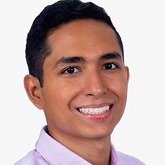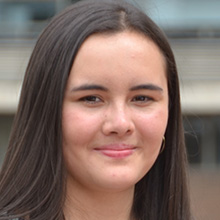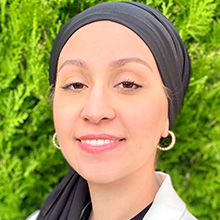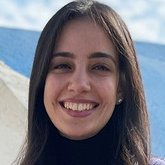Shaping a Researcher from the Ground Up: The Robert S. McNamara Fellowship
Quite often, people reach out to me asking what economists do. Many of them expect an answer related to finance, business, politics, or even an emphasis on superior mathematical prowess. I do not pretend to answer that question, but it is worth noting that economics is not commonly associated with the realm of science. Surprising as it may seem, economists are, in fact, social scientists. This role can be challenging to comprehend, particularly in many developing countries where the research work in economics is not emphasized as a successful professional path. This misconception belongs to the prevailing paradigm in the development countries.
The Robert McNamara Fellowship is an effort to disrupt that paradigm. Matching potential researchers in economics from developing countries with researchers in the World Bank’s Development Impact Evaluation (DIME) and Development Research Group departments means to generate more opportunities for diversifying research groups and reducing the concentration of research activities.
For individuals who have not yet embarked on a doctoral program but possess a strong desire to explore and answer questions, the fellowship program offers a valuable opportunity to define their research preferences and sharpen the intuition required to begin a journey on economics research. For those currently enrolled in a doctoral program, the fellowship serves as a platform to strengthen their research agenda. Meanwhile, for those who are not specifically interested in pursuing a Ph.D. but still aspire to contribute to research and policy, the Robert McNamara Fellowship is an opportunity to gain insights into managing the research workflow and interact with government agencies, local communities, academia, and policymakers. By participating in high-quality research teams, fellows are provided with a pathway to shape their professional pursuits to make meaningful contributions to the science and policy formulation.
I worked on a research project within the Infrastructure and Climate Change unit at DIME. For a span of nine months, I actively participated in a transportation project aimed at evaluating the impact of subsidized transport fares on the most vulnerable segments of the population. The project takes advantage of a policy change in the methodology of subsidy targeting to assess its effects on the well-being of these vulnerable individuals, such as improved access to healthcare and job opportunities. But one step before that goal, the research team encountered a significant challenge: the low uptake of the subsidy. It immediately creates a puzzle around why people are not signing up for the subsidy. Therefore, as a team, we worked to construct a narrative that contextualized the baseline survey statistics and helped us gain a deeper understanding of the needs, perceptions, and challenges faced by the population. My research role was related to data analysis, survey design, and conducting pre-pilot surveys for the follow-up intervention. It was incredibly touching to be able to interact with some individuals, collecting their experiences, and discussed them within the team to then design an intervention aimed not only to determine the impact of such subsidies but also to assist the local government in designing more effective policies that address the specific needs of the most vulnerable population.
In addition to my project responsibilities, I have also had the opportunity to participate in various technical and knowledge trainings that focus on critical aspects of social research. These trainings cover essential topics such as research reproducibility and replicability, effective management of field research, and coding skills in R, Python, and STATA. Moreover, the opportunities extend further through a wide array of seminars, workshops, and conferences about relevant cross-cutting themes. Engaging in these events not only allowed me to explore different areas of economics that I am interested, but also provides a platform for connecting with researchers beyond the World Bank. These interactions have been invaluable, guiding, and inspiring aspiring researchers like me towards research-oriented careers.
The Robert McNamara Fellowship is a concise yet intensive program that serves as a guiding force for young researchers in pursuit of their professional aspirations. It not only provides an opportunity to engage in a cutting-edge research environment but also offers a platform to shape oneself as a researcher, even from the ground up. The research ethos at institutions like the World Bank inspires fellows to pursue a pathway where research goes beyond filling knowledge gaps and actively impacts the living conditions of peoples around the world.
|
David Concepcion Quiroz Barrios |



